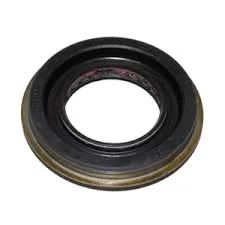7 月 . 27, 2024 17:30 Back to list
Exploring the Benefits and Applications of Industrial Oil Seals in Various Industries
Understanding Industrial Oil Seals Their Importance and Applications
Industrial oil seals, also known as shaft seals or rotary seals, play a pivotal role in a myriad of applications across different industries. These components are designed to prevent the leakage of lubricants and protect the internal parts of machinery from contaminants such as dust, dirt, and moisture. Although often overlooked, oil seals are critical to ensuring the longevity and efficiency of machinery.
The Purpose of Industrial Oil Seals
At the core of their function, industrial oil seals serve two main purposes sealing in lubrication and keeping out unwanted contaminants. Lubricants, such as oil or grease, are fundamental in reducing friction between moving parts. However, without effective sealing, these lubricants can easily escape, leading to increased wear and tear on the machinery. Furthermore, the intrusion of contaminants can lead to corrosion and mechanical failures, ultimately causing significant downtime and repair costs.
Types of Industrial Oil Seals
There are various types of oil seals, each designed to address specific sealing challenges
. The most common types include1. Radial Lip Seals These seals consist of a flexible lip that makes contact with the shaft and a casing that fits snugly into the housing. They are commonly used in rotating applications, such as in motors and gearboxes.
2. Mechanical Seals Typically employed in pumps, mechanical seals use a pair of flat surfaces that maintain contact under pressure. This design provides excellent sealing capabilities but can be more complex to install and maintain.
industrial oil seals

3. U-Cup Seals These seals feature a U-shaped cross-section and are primarily used in linear motion applications. They are effective in sealing under both static and dynamic conditions.
4. O-Rings Simple yet effective, O-rings are circular-shaped seals that are widely used in various applications, particularly in static sealing environments.
Material Considerations
The performance of industrial oil seals significantly depends on the materials used in their construction. Common materials include rubber (such as Nitrile, Viton, and Silicone), thermoplastics, and metal. Rubber seals are favored for their flexibility and ability to conform to the surfaces they seal, while metal seals can withstand higher temperatures and aggressive chemicals. When selecting an oil seal, factors such as pressure, temperature range, and the nature of the lubricants and contaminants must be carefully considered.
Applications Across Industries
Industrial oil seals are employed in numerous sectors, including automotive, aerospace, manufacturing, and oil and gas. For instance, in the automotive industry, they are critical in engines, transmissions, and wheel bearings. In manufacturing, oil seals are vital in conveyors, hydraulic systems, and various machinery. Their robust design and durability make them suitable for harsh environments, ensuring the reliability and efficiency of equipment.
Conclusion
In conclusion, industrial oil seals are essential components in mechanical systems, significantly impacting operational efficiency and equipment longevity. By preventing lubricant leakage and sealing out contaminants, they contribute to smoother and more reliable machinery operations. Proper selection, installation, and maintenance of these seals can lead to considerable cost savings and improved performance. As industries continue to evolve and demand higher efficiency, the significance of oil seals in industrial applications will only grow.